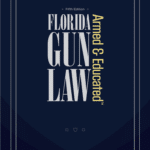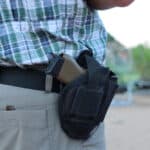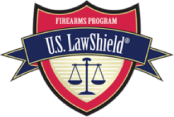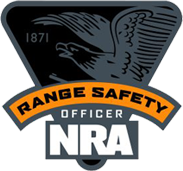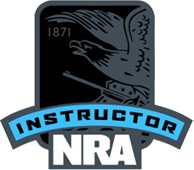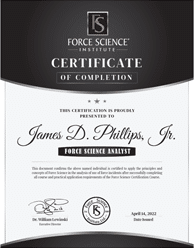- February 07, 2019
3 Florida Gun Law Myths
The first gun law myth we will debunk is the 3-step rule. Florida has no 3-step rule. Florida Statute 790.25(5) in relevant part states: “It is lawful for a person 18 years of age or older to possess a concealed firearm or other weapon for self-defense or other lawful purpose within the interior of a private conveyance, without a license, if the firearm or other weapon is securely encased or is otherwise not readily accessible for immediate use.”
To learn more about carrying in your car in Florida without a license, please read our post on the carrying a firearm in your car without a cwfl
A 3-step rule would require the firearm to be 3 -steps away from firing. For example: step one, get gun case from glove compartment. Step two, Get gun from gun case. Step 3. Load Gun. Florida does not now, nor has it ever had a 3-Step Rule.
To be securely encased, the firearm must be placed in a closed container. The glove box or center console of the car are both acceptable. A firearm cannot be placed loosely under a seat or between the seat and center console.
Florida Gun Law Myth Number Two: THE 21-FOOT RULE
The second gun law myth that has no basis in Florida law is the 21-Foot Rule. The 21-foot rule requires a victim to be within 21-feet of an attacker before the victim can defend themselves.
There is simply no basis in the law for this belief. Florida law does not specify a distance between parties before one gains the right to defend themselves using deadly force.
The 21-foot rule, was developed by Lt. John Tueller, a firearms instructor with the Salt Lake City Police Department. Tueller set up a drill to determine the distance needed for an officer to defend himself. He determined that at least 21 feet between the officer and the assailant was needed. If there was less than 21-feet, when engaged, the officer would be stabbed. With less than 21-feet the officer would be stabbed before they could draw their weapon. When the suspect further away the officer was likely to be able to draw and fire before being fatally stabbed.
Florida law requires a reasonable belief that the use of deadly force is necessary to prevent imminent death, or great bodily harm. A prosecutor could argue that the belief was unreasonable if a great distance is between the attacker and the victim. A jury find that it was unreasonable to believe that deadly force was necessary to prevent injury or death when the assailant was 300 feet away, yelling threats, and carrying a knife. The point is that the defender would not have to wait until the assailant was within 21 feet to defend themselves.
Florida Gun Law Myth Number Three: THE WARNING SHOT LAW
Florida’s “Warning Shot” law is the last Florida gun law myth we will debunk today.
The words “warning shot” are not found anywhere in Florida Law. There is no Statute in Florida that allows a person to fire a warning shot, unless they have a right to use deadly force. Firing a warning shot may be a ticket to prison. Under Florida law, the firing of a handgun—or long gun—is the use of deadly force. There has even been a case where the victim was pulling his firearm from the holster and accidentally discharged it into the ground next to him, where the court held that he used deadly force. Deadly force can only be used to defend against force likely to cause death or great bodily harm in Florida.
If an assailant threatens to “kick your ass”, and runs toward you with empty hands, you do not have a right to pull your gun and shoot them or to fire a warning shot. You have a right to display your firearm, to discourage the attack however. By law the display of a firearm is only the use of force, not deadly force.
Even if you are pointing your firearm straight down at your side, or if the firearm discharges accidentally as you pull it from the holster, Florida law will hold that you have used deadly force.
If you are in a situation where you did not have the right to use deadly force, then the accidental discharge or intentional firing of a warning shot could land you in jail.
Get in touch

"*" indicates required fields
Copyright © 2022-2025 The Firearm Firm All rights reserved.

